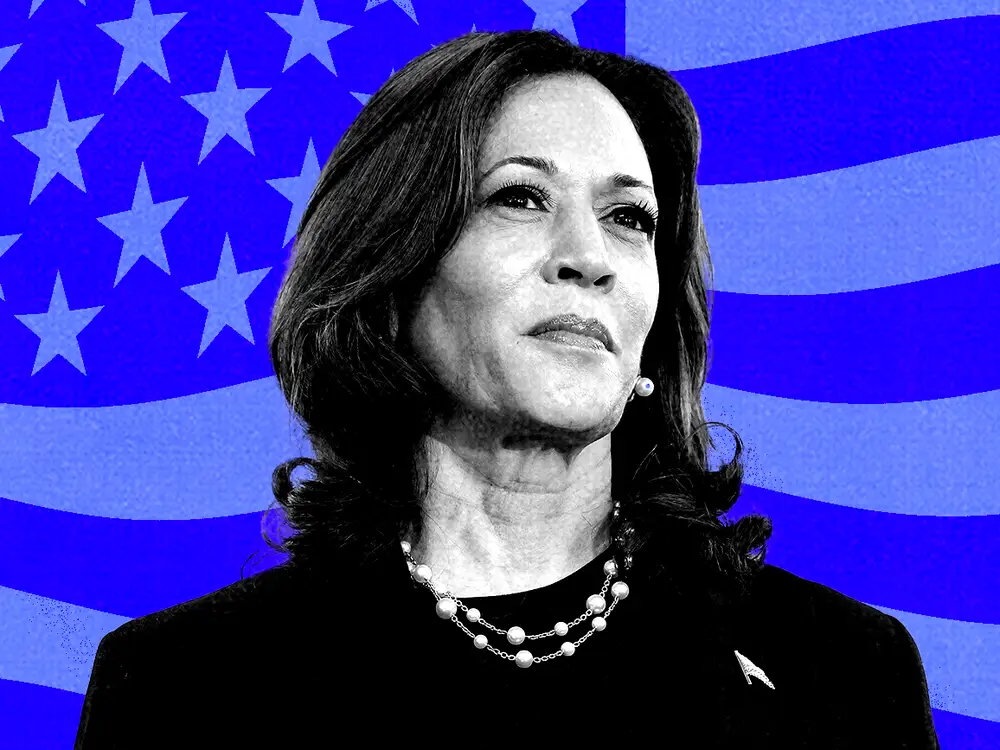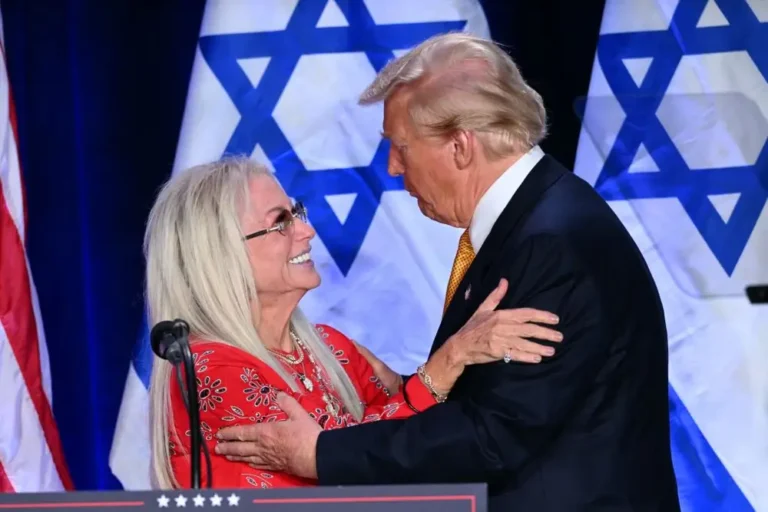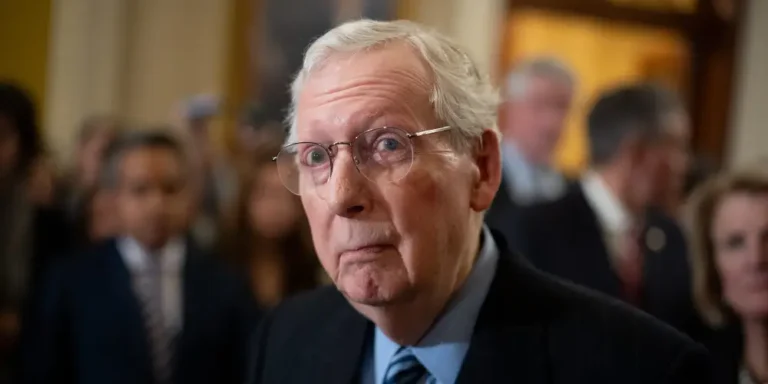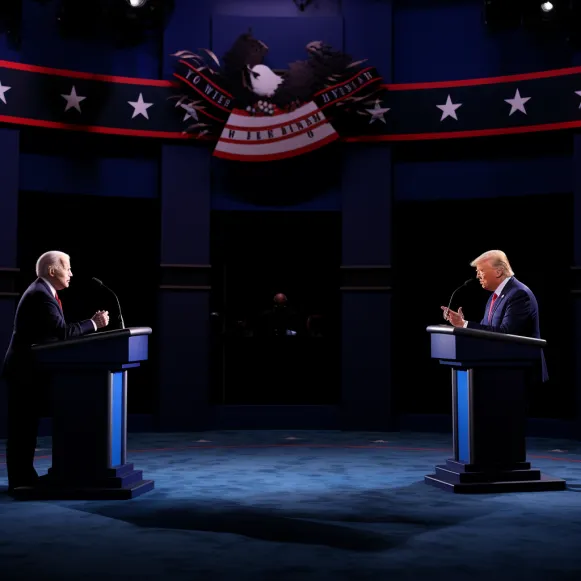Democrats hope the DNC extends Harris’ winning streak but mass Israel protests could ruin the vibes

Vice President Kamala Harris wants to project the image of a unified Democratic Party during the national convention in Chicago.
Just weeks ago, Democrats were dreading their convention in Chicago. Now, Vice President Kamala Harris has them downright joyful.
Harris’ last minute campaign is hitting its stride heading into the Democratic National Convention, erasing former President Donald Trump’s lead across almost every swing state that will decide the election.
“Even I thought she’d be an underdog, just less of an underdog than Biden would have been,” Nate Silver recently told B-17. “Now I think you’d probably rather be in her position.”
Trump is now the dejected one, renewing old feuds with fellow Republicans and straying off script to attack Harris’ race and push unfounded conspiracy theories. After delighting in Democrats’ disarray around President Joe Biden, Trump is now confronted by a host of allies begging him to stay on message.
Trump’s campaign tried to downplay the moment from the start, predicting that Harris’ “honeymoon” wouldn’t last. But as Democrats gather at the United Center in Chicago, they are positioned to seize the remaining days in August. Harris’ momentum could power her through the traditional home stretch that begins on Labor Day.
“What you’ve seen is a party that in all facets — some of the moderates, more conservative Democrats, progressive Democrats — have all rallied around this ticket and are going to show support at the Convention,” said Amy Dacey, a former CEO of the Democratic National Committee who is now the executive director of the Sine Institute of Policy & Politics at American University.
It might not be a coronation, though. Protesters have pledged to make the White House’s handling of the war in Gaza the backdrop of the convention. While a scene out of the 1968 convention is unlikely, there’s a reason why Democrats have long been afraid of returning to the Windy City for the first time since the unrest over the Vietnam War.
Harris has shown that she values party unity. In choosing Minnesota Gov. Tim Walz as her running mate, she followed the first rule of vice presidential selections: do no harm. The last thing she or her allies want is the party’s disarray to become the top story again.
Democrats’ best hope is that their four-day spectacle solidifies a positive image of Harris. Once one of the least popular vice presidents, polls show Harris’ popularity has soared. But as The New York Times’ Nate Cohn cautioned, the vice president’s rapid rise shows that the image around her is still forming.
No vibe shift can overshadow the lingering discontent over Gaza.
Though Democrats are hoping to use the convention to project unity, planned demonstrations both inside and outside the United Center threaten to disrupt the image of consensus. Organizers said they expect as many as 40,000 people to join a march protesting the Biden administration’s handling of the war in Gaza, Semafor reported. Protests are not expected to affect the convention itself, but confrontations in the streets of Chicago could easily overshadow the event.
Israel’s war in Gaza has emerged as a key campaign issue, with some voters threatening to cast protest votes or stay away from the polls altogether. The movement among Democratic activists is rooted in Michigan, where more than 101,000 people voted “uncommitted” during the primary in March to protest Biden’s actions in the war.
Compared to her current boss, Harris has struck a different tone when discussing the war, now in its 11th month. She has put more emphasis on the plight of Palestinians and called for an immediate cease-fire. Activists are generally more excited about her candidacy than they were about Biden’s, particularly with the addition of Walz.
“This shift in candidates with Harris and Walz does open up our opportunity, open up a window for us to be heard. We have seen Vice President Kamala Harris be slightly more empathetic and sympathetic to the plight of Palestinians,” said Layla Elabed, one of the founders of the Uncommitted protest movement in Michigan.
Still, Harris’ precise policy agenda regarding Israel remains unclear and many activists still harbor significant doubts. When asked whether she plans to vote for Harris, Elabed told B-17 that she is still waiting to see whether the vice president will “turn a page away from Biden’s current policy.”
Organizers expect tens of thousands of people to take to the streets outside of the convention center, the Washington Post reported. They have been engaged in court battles with the city of Chicago about specific demonstration routes and how close protestors can get to the United Center. As of August 11, the city had sanctioned a 1.1 mile route, which is set to begin in Union Park.
Some fear that the protests could become violent, which poses hurdles for DNC organizers.
“It’s logistics, it’s finances, and security. Those are the top three issues,” said Dacey who participated in site selection and negotiations with the city of Philadelphia ahead of the 2016 convention. “Security is a top priority, especially because you have so many leaders coming to speak.”
The security measures, however, cannot stop the approximately 30 delegates representing uncommitted voters from lodging complaints from inside the building. The uncommitted delegates are demanding a private meeting with Harris, an arms embargo on Israel, and alterations to the party’s foreign policy that distance Israel.
To draw attention to their cause, uncommitted delegates are planning news conferences, vigils, and literature distributions, among other efforts. They represent states across the country, with Minnesota having the most delegates at 11.
While the protests do not threaten Harris’ status as the nominee — she officially secured the nomination during a virtual roll call with support from 99% of delegates — they do pose a significant optics issue at a time when the Democratic Party is celebrating its ability to coalesce around the new ticket.






